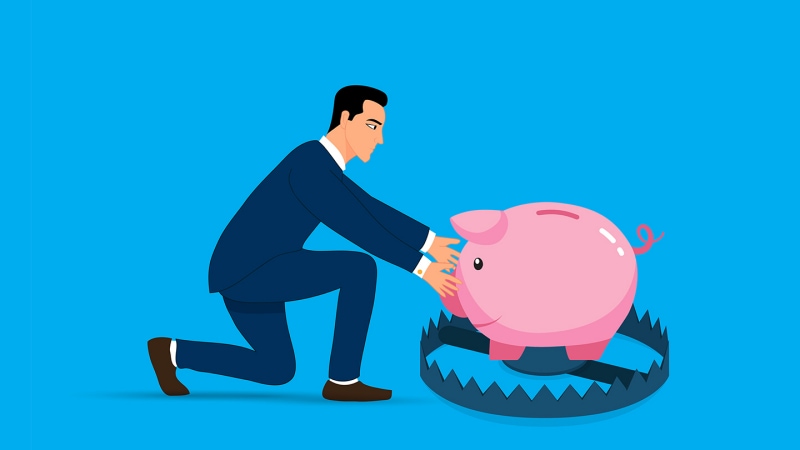What is a debt trap?

Highlights
- A debt trap occurs when you continue to take out loans/lines of credit to pay off other debt.
- A cycle of debt can negatively impact your score.
- There are several ways to help manage your debt and remain proactive so you don’t fall into a debt trap.
It can be exciting to be approved for a loan or credit card that allows you to make purchases you may not have been able to make before. However, one of the financial pitfalls you may need to be warned about are debt traps, which can occur when you continue to borrow money in order to pay off debts, leading to compounding debts and more interest fees. This can damage your credit score and prevent you from getting approved for future lines of credit. If you want to know more about debt traps and how to avoid them, take some of these proactive steps.
Ways of avoiding a debt trap
Having a lot of debt may prohibit you from acquiring a higher credit score and, in turn, hinder you from achieving certain life milestones, such as taking out a mortgage or auto loan.
Once you’ve fallen into a debt trap, it can be stressful and difficult to get out. It can negatively affect your credit score, which is used to help determine your eligibility for loans and lines of credit. Don’t know your current score? Enrolling in Chase Credit Journey® is allows you to review it for free. You can also receive a personalized action plan provided by Experian™ to help you improve your credit score over time. You'll also get access to free identity monitoring alerts, which help you stay aware about any suspicious activity.
Creating and sticking to a budget
It may sound obvious, but sticking to a budget can keep you from falling into a rabbit hole of debt. Take some time to review your spending each month/week/day and see if you can create a realistic budget for yourself.
Keep track of your current expenses and prioritize the items you need, like rent and food. If you can, cut back on unnecessary expenditures. Is there a premium music streaming service you pay for but rarely use? Cutting back on these added costs, which add up over time, can give you more room to pivot those funds towards offsetting your debt.
Prioritize paying off debt
It can feel overwhelming when it comes to paying off your debts. That’s why prioritizing certain debts and using appropriate methods can be a helpful way to break things down. Fortunately, there are few helpful strategies at your disposal.
- Debt snowball method — If you want to prioritize paying off as many different types of debts as possible, consider using the debt snowball method. You will “roll” from your smallest debt to the next smallest amount of debt and you continue the cycle until you pay off the largest debt on your queue.
- Debt avalanche method — If you want to tackle the biggest debts first, you can use the debt avalanche method. This method can be a little intimidating, as the focus is on paying off larger debts first, but this may save you from paying high interest rates down the line.
- Consolidate your debts — If your debt is mostly credit card-related, you can consolidate your debts or, if you’re eligible, execute a balance transfer. This is where you can transfer your debt to a lower annual percentage rate (APR) account, which can save you in interest costs.
Contribute to your emergency fund
Regardless of whether you have debt or not, life is filled with moments that may require you to dip into an emergency fund to cover costs for things like sudden medical expenses. In those moments, the last thing you want to think about is whether you have the funds to manage.
Building up your savings can be a supportive cushion to fall back on so that you don’t have to take out more lines of credit to pay off sudden expenses. One way to do this is to start small, save even a few dollars a week or a small percentage of your monthly income. Even the smallest habits can be built up over time to make a lasting impact.
Bottom line
Debt isn’t necessarily bad, but when it becomes unmanageable, things can start to quickly unravel. Settling your debt may help you achieve greater financial wellness and an improved state of mind. You also may want to read the terms and conditions of your credit card or loan to fully understand how settling your debt may impact you.
Anyone is capable of falling into a debt trap. By taking certain measures you can help protect yourself from falling into one.


